Cheat Sheet: State Public Service Commission | Indian Polity for UPSC CSE PDF Download
Introduction
This chapter explains the State Public Service Commission (SPSC), a body in each Indian state responsible for recruiting candidates for state civil services. It covers the SPSC’s structure, functions, limitations, and role, as outlined in Articles 315-323 of the Constitution. The chapter highlights how SPSCs ensure merit-based recruitment tailored to state needs while maintaining standards similar to the Union Public Service Commission (UPSC).
Composition of the State Public Service Commission
Each SPSC is an independent body led by a chairman and members appointed by the state governor, designed to handle state-specific recruitment with flexibility in size and conditions.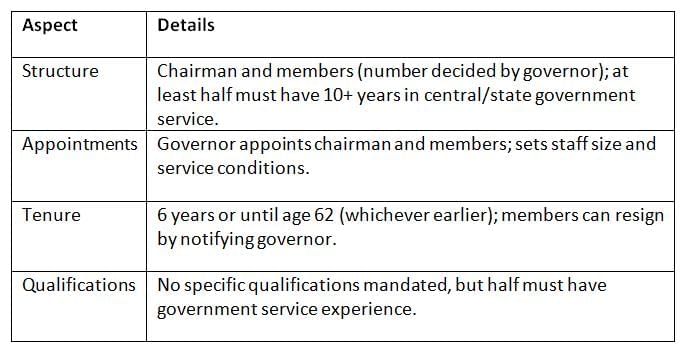
Key Points: The SPSC’s flexible composition, with experienced members, ensures effective state-level recruitment under the governor’s oversight.
Removal of SPSC Members
While appointed by the governor, SPSC members can only be removed by the President under strict conditions, ensuring their independence, with misbehaviour cases requiring Supreme Court inquiry.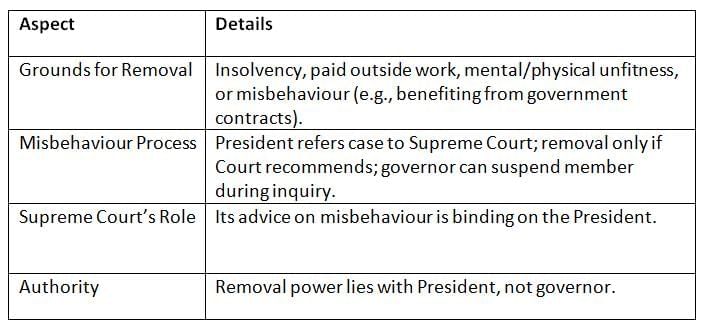
Key Points: Strict removal processes, involving the Supreme Court, protect SPSC members’ independence, ensuring impartial recruitment.
Functions of the State Public Service Commission
The SPSC conducts exams and advises on state civil service matters, acting as a key player in merit-based recruitment and governance.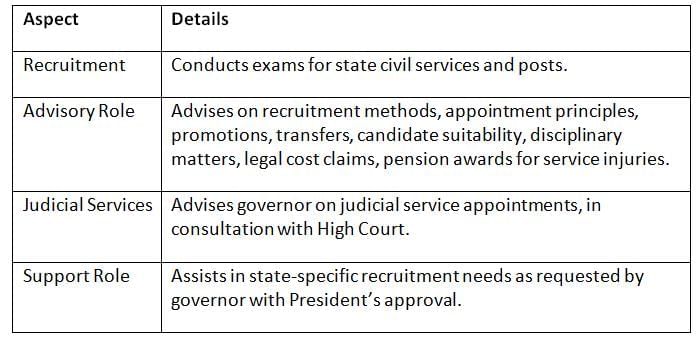 Key Points: The SPSC’s core functions include recruitment and advisory services, ensuring merit in state civil services, with a special role in judicial appointments.
Key Points: The SPSC’s core functions include recruitment and advisory services, ensuring merit in state civil services, with a special role in judicial appointments.
Role of the State Public Service Commission
The SPSC serves as a “watchdog of the merit system” for state services, focusing on recruitment and advisory roles, though its recommendations are advisory and distinct from broader personnel management.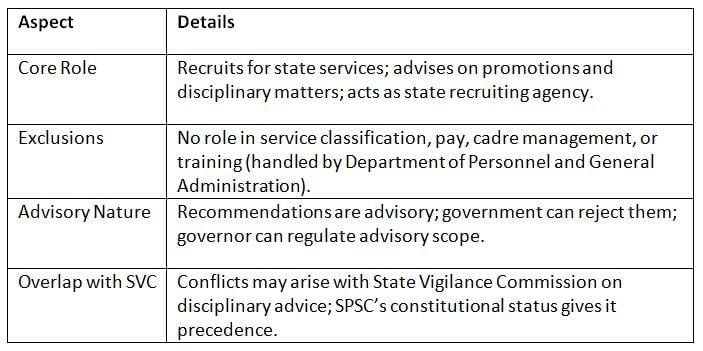 Key Points: The SPSC ensures merit-based state recruitment but has a limited, advisory role, with potential overlaps with the State Vigilance Commission.
Key Points: The SPSC ensures merit-based state recruitment but has a limited, advisory role, with potential overlaps with the State Vigilance Commission.
Limitations of the State Public Service Commission
The SPSC’s advisory role excludes certain matters, and its recommendations are not binding, with the governor able to limit its jurisdiction.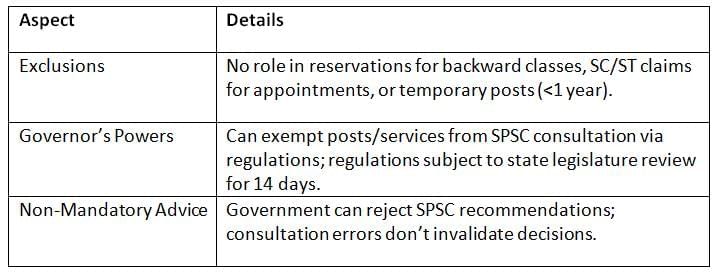
Key Points: The SPSC’s influence is limited by exclusions, non-binding advice, and governor’s exemptions, restricting its scope in certain recruitment matters.
Joint State Public Service Commission (JSPSC)
A JSPSC can be formed to serve multiple states, established by Parliament, offering a coordinated recruitment approach while maintaining state-specific focus.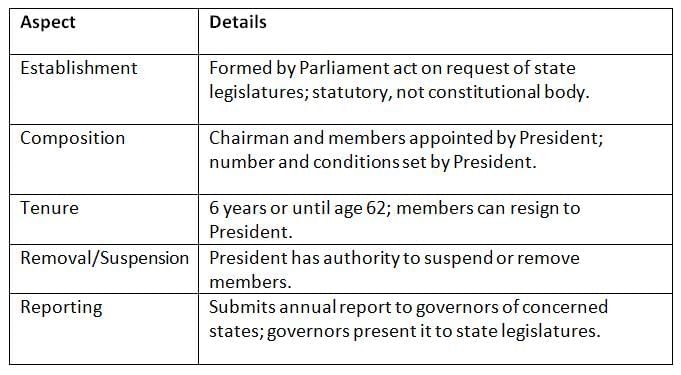
Key Points: The JSPSC provides a collaborative recruitment platform for multiple states, with presidential oversight and statutory status.
Chronology for Quick Revision
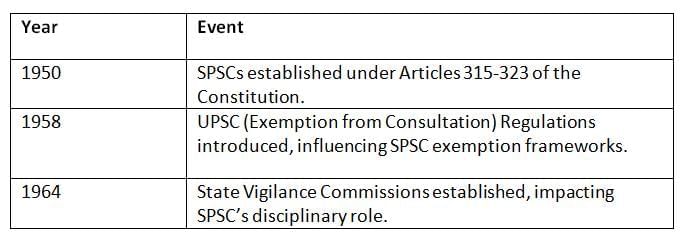
Conclusion
This chapter underscores the State Public Service Commission’s vital role in ensuring merit-based recruitment for state civil services in India. As an independent body, the SPSC conducts exams and provides advisory support, tailored to each state’s needs while aligning with UPSC standards. Despite limitations like non-binding advice and exclusions from certain matters, it remains a cornerstone of state governance. Strengthening its advisory influence and resolving overlaps with bodies like the State Vigilance Commission can enhance its effectiveness in upholding India’s administrative merit system.
|
142 videos|777 docs|202 tests
|
FAQs on Cheat Sheet: State Public Service Commission - Indian Polity for UPSC CSE
| 1. What is the composition of the State Public Service Commission? |  |
| 2. How can members of the State Public Service Commission be removed? |  |
| 3. What are the primary functions of the State Public Service Commission? |  |
| 4. What role does the State Public Service Commission play in governance? |  |
| 5. What is a Joint State Public Service Commission (JSPSC)? |  |
















